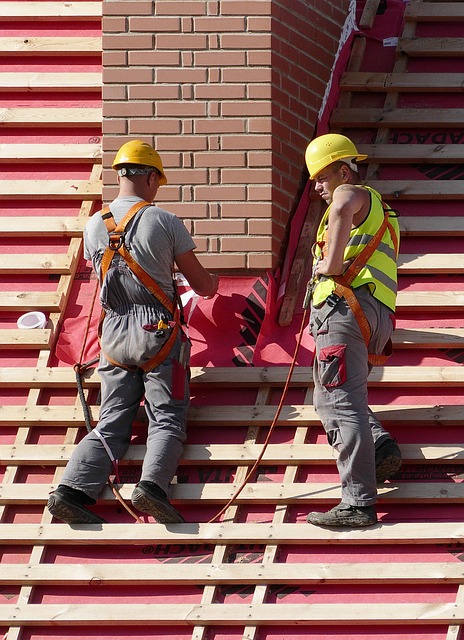Share This Article:

Was it Impossible to Safeguard Roofer who Fell before Colleagues Installed Fall Protection?
11 Nov, 2024 Chris Parker

What Do You Think?
Ravenna, OH (WorkersCompensation.com) -- Ohio employers need to think hard about how they are going to protect their employees from falling off of roofs during work. Fall protection is required in Ohio when the roof is six feet or more above the ground and it arguably applies as soon as a worker steps foot on the roof.
One Ohio case asks: what happens if the worker falls when his colleagues are still in the process of setting up the protective equipment? In that case, a roofing company employee had stepped onto a roof with colleagues. They began surveying it–in part to determine where to attach fall protection equipment. While that was occurring, the employee, who was looking for leaks, plummeted eight feet to the concrete floor and injured himelf.
The employee was awarded workers’ compensation benefits. He was also awarded VSSR (violated a specific safety requirement) benefits, because there was no fall safety equipment in place when he fell. The employer argued it was impossible to set up such equipment while it was still in the process of setting up fall protection equipment.
To receive a VSSR award, a claimant must prove that:
- A specific safety requirement applied;
- The employer violated that requirement; and
- The employer's violation caused the injury.
Ohio Adm.Code 4123:1-3-03(J) requires an employer to provide safety equipment when work is being performed more than six feet above a floor.
Impossibility is an affirmative defense to a VSSR.To establish impossibility, an employer must show:
- That it would have been impossible to comply with the specific safety requirement or that compliance would have precluded performance of the work; and
- That no alternative means of employee protection existed or were available.
Did the employer establish impossibility as a defense?
A. No. The employer failed to show that there was no other way to protect its roofers, even though they had just set foot on the roof.
B. Yes. When the employee fell, the company was still in the process of installing protective equipment.
If you selected A, you agreed with the court in Prime Roof Solutions, Inc. v. Industrial Commission of Ohio, No. 22AP-523 (Ohio Ct. App. 10/31/24), which held that the company did not establish impossibility.
Fall protection was required in this case, given the height of the roof and the hazard of falling. The employer failed to establish it was impossible to install fall protection the moment its workers stepped onto the roof. While it claimed impossibility, that was not enough; it had the burden to show that there were no alternative means available to secure its workers.
“Prime Roof attempts to make a distinction between actual repair work and surveying the roof for potential repair locations, but it is all effort that should only be performed with the appropriate safety equipment,” the court wrote.
The court cited the magistrate’s report and recommendation suggesting the steps the company could have taken to protect its workers:
The employer could have used a different method of protecting claimant from falling while he was performing the initial task of identifying leaks, or the employer could have, at a minimum, used the same system but installed it incrementally as workers entered the roof to inspect the roof and install the permanent system.
The court denied the employer’s writ of mandamus.
california case management case management focus claims compensability compliance courts covid do you know the rule emotions exclusive remedy florida FMLA fraud glossary check health care Healthcare hr homeroom insurance insurers iowa leadership medical NCCI new jersey new york ohio osha pennsylvania roadmap Safety state info technology texas violence WDYT west virginia what do you think women's history women's history month workcompcollege workers' comp 101 workers' recovery Workplace Safety Workplace Violence
Read Also
About The Author
About The Author
- Chris Parker
More by This Author
Read More
- Apr 18, 2025
- Claire Muselman
- Apr 18, 2025
- Liz Carey
- Apr 18, 2025
- Claire Muselman
- Apr 18, 2025
- Chris Parker
- Apr 16, 2025
- Frank Ferreri
- Apr 16, 2025
- Claire Muselman




